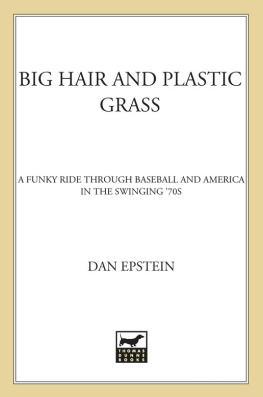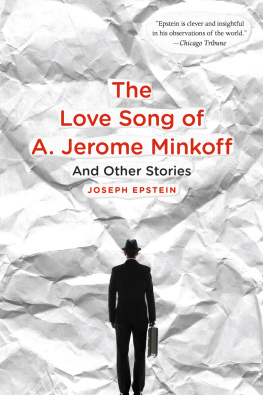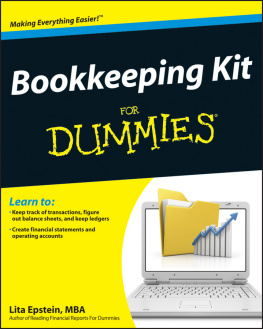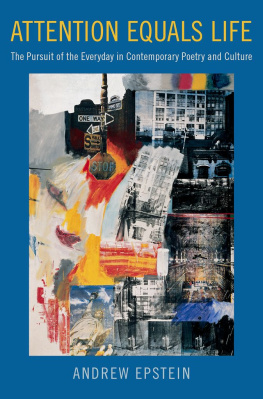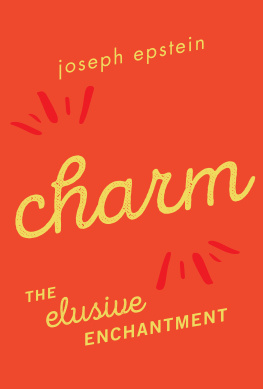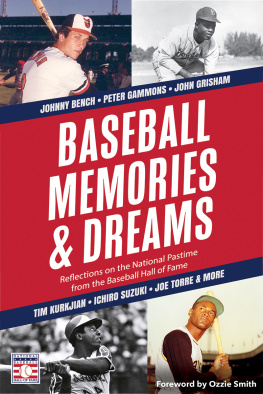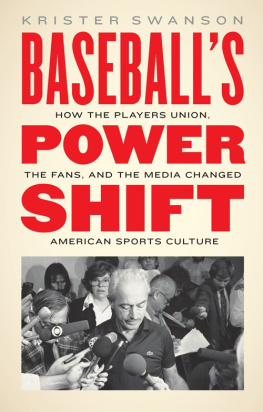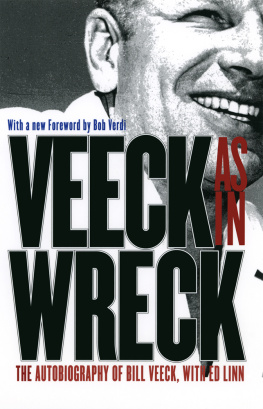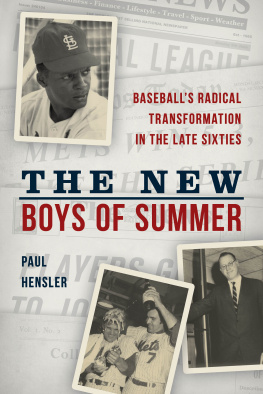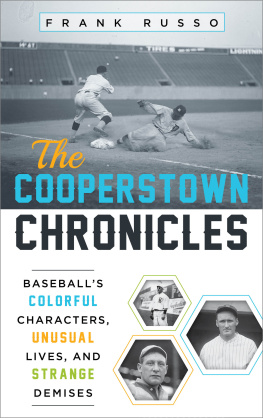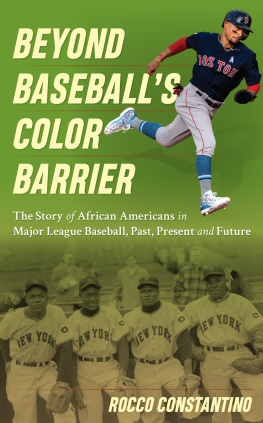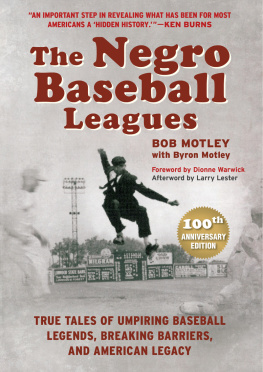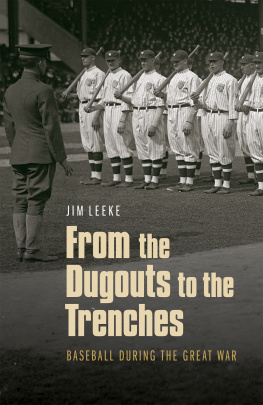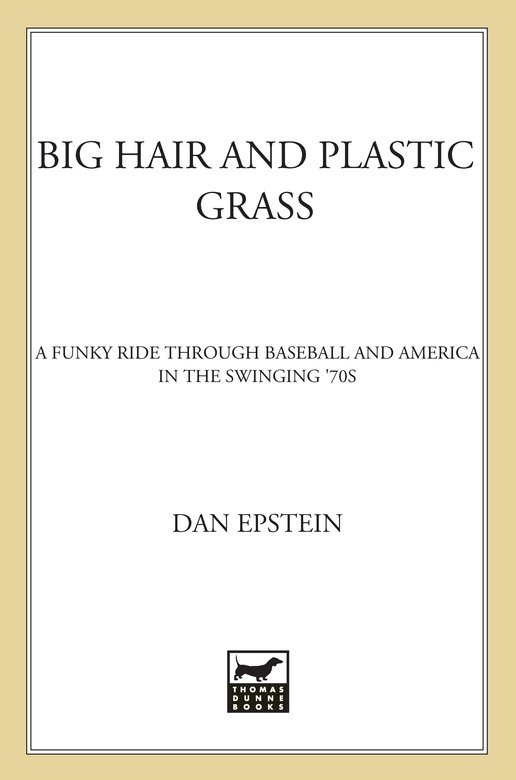By the time you read these words, it will have been over 10 years since the day I decided to write this book. I am incredibly grateful to my agents Lyn DelliQuadri, Jane Lahr, and Ann Tanenbaum at LTD Editions, and to Rob Kirkpatrick, my editor at St. Martins, for their belief in the project; its not blowing smoke to say that they bear considerable responsibility for making my 70s daydream a reality. Robs helpful suggestionsoffered as much from the perspective of a true baseball fan as from an editors need to get this manuscript down to a manageable sizelent me some much-needed focus at times when I was completely overwhelmed by the daunting task of tackling this insanely colorful decade. I also owe considerable gratitude to Margaret Smith at St. Martins, for shepherding my book through the copyedit and production stages.
Id also like to thank a number of friends, colleagues, and acquaintances for inspiring me to keep on keepin on with this book. Im sure Im forgetting some folks (for which Ill apologize now), but Michael Ansaldo, Michael Azerrad, Soren Baker, Greg Barbera, Fred Baron, Tom Beaujour, Josh Bernstein, Will Fulford-Jones, Randy Bookasta, Jerry Cook, Bill Crandall, Jennifer Dorn, Rebecca Epstein, Paul Gaita, Erik Himmelsbach-Weinstein, Sean Kelly, Lynda Keeler, MJ Knappen, Dean Kuipers, AdamLanger, Dr. LaWanda, Bob MacKay, Betsy McLaughlin, Josh Mills, Michael Moses, Dave Mundo, Morgan Neville, Betsy Nichols, Bruno Oliver, Chris Perry, Carole Pixler, Gary Poole, James Saft, Bob Samiljan, Stu Shea, Max Stevens, Erik Sugg, Brad Tolinski, Jaan Uhelski, David Ulin, Loana DP Valencia, Don Waller, and Don Zminda all offered substantial encouragement, ideas, insight, advice, and moral support for the project at crucial junctures in the writing process. Thank you all for recharging my enthusiasm at times when this labor of love started to feel more like a labor than a love.
Special shout-outs go to Rebecca Fain, who was wonderfully helpful in guiding me through the maze of photo research, and Steve Dewing, whose jaw-dropping photo archives provided me with several of the rare images you see in this book. (Check out his amazing Web site, Steves Baseball Photography Pages, at www.thatsmyboy03.com .) And many thanks to Rob Neyer and Paul Lukas from ESPN.comthe former for his photo research advice, and the latter for helping me come to grips with the full horror of the Chicago White Sox softball shorts incident. Uni Watch, Pauls enormously entertaining blog, was also a valuable and inspiring resource for my chapter on uniforms. You can visit his site (and, if youre as hard-core as I am about the aesthetics of diamond wear, become a member) at www.uniwatchblog.com .
The explosion of baseball information on the Internet over the last decade has made research and fact-checking a lot easier than it was back when I first began this project. Web sites I found particularly valuable and inspirational included Baseball-Reference.com, Baseball-Almanac. com, Ballparks by Munsey & Suppes ( www.ballparks.com ), ballparksof-baseball. com, Clems Baseball Blog ( www.andrewclem.com/baseball ), Josh Wilkers cardboardgods.net, Al Yellons bleedcubbieblue.com, the SI Vault ( www.sportsillustrated.cnn.com/vault ), the Time magazine archives ( www.time.com/time/archive ), and the sadly now-vanished Sporting News archives at Paper of Record, all of which enabled me to delve deeply into the decade while relaxing at home with a beer in my hand and some righteous 70s jams on the stereo.
And finally, Id like to take a moment to pay tribute to two of my all-timebaseball heroes, Dock Ellis and Mark Fidrych, both of whom passed away during the final stages of this book. I had the pleasure of watching and rooting for both pitchers as a kid, but its only in recent years that Ive realized how much Docks iconoclastic attitude and the Birds playful approach to life rubbed off on me at an early age, inspiring me to live as truthfully and as joyfully as possible, and forever wave my own freak flag high. Those two gents were keepin it real long before that dubious phrase entered the popular lexicon; and while theyll never be elected to the Baseball Hall of Fame, theyve long been permanently enshrined in mine.
THE PARTYS OVER
On the field, at least, there was little about the 1980 baseball season to differentiate it significantly from the 10 seasons that had come before it. If anything, the 1980 season was pretty much a direct extension of the 1970s, with most of the dominant players and teams from that decade figuring heavily in 1980s outcome.
The Philadelphia Phillies and Kansas City Royals made it back into the playoffs after taking an involuntary one-year hiatus from postseason playand it was somehow perfect, even poetic, that the two teams faced off against each other in the 1980 World Series. Both teams had come painfully close to making the Fall Classic so many times during the 1970s, only to be denied by the glitzier, higher-profile, higher-paid Yankees, Reds, and Dodgers squads. The fact that the 1980 Series was the first one to be played entirely on artificial turf only added an extra layer of 70s dj vuas did the sight of flamboyant Phils reliever Tug McGraw (whose battle cry of You gotta believe! had sparked the 1973 Mets to the NL championship) celebrating his Series-clinching strikeout of the Royals Willie Wilson by dancing on the Veterans Stadium mound. But there was nothing remotely 1970s about the battalion of helmeted Philadelphia riot squad cops that circled the field to deter any potentialinvasion of would-be rioters; in retrospect, it seemed more like a glimpse of the cold, hard Reagan years to come.
Its been said many times that the American 1940s didnt really end until Elvis showed up during the first Eisenhower administration, and that the 1950s hung on until the Beatles landed at New York s newly renamed JFK Airport in February 1964. And whether the 60s as we know them actually ended with the Rolling Stones tragic Altamont concert in December 1969, the May 1970 Kent State shootings, the re-election of Richard Nixon in 1972, Nixons resignation in 1974, or the fall of Saigon in 1975 remains very much open to debate.
The door on the 1970s, however, slammed shut fast and hard. Jimmy Carter, whod surfed into the White House in 1976 on a wave of Bicentennial optimism, would be out of office by 1981, his presidency doomed by the countrys dire economic difficulties, the Soviet Unions December 1979 invasion of Afghanistan, and the ongoing diplomatic nightmare of the U.S. embassy hostage crisis in Iran. For Americans still filled with angst over their countrys ignominious exit from Vietnam, the U.S. governments inability to find immediate solutions to any of these issues gave rise to additional feelings of anger and impotence, which Ronald Reagan was able to exploit successfully during his 1980 run against Carter for the Oval Office.
Shortly after being sworn in on January 20, 1981, Reagan set in motion massive cuts in government spending, which seriously truncated (or eradicated entirely) many of the Carter administrations social programs for the poor, the elderly, and the mentally ill. Meanwhile, Nancy Reagan, the new presidents fashion-plate First Lady, spent over $800,000 redecorating the White House living quarters, including over $200,000 for new china. The message was clear: compassion and sacrifice were out; greed and opulence were in. After years of Jimmy Carter empathizing with our malaise and telling us to lower our expectations and carry our own suitcases, wrote author Jay McInerney, the Reagans were unself-conscious advocates of the good life.

